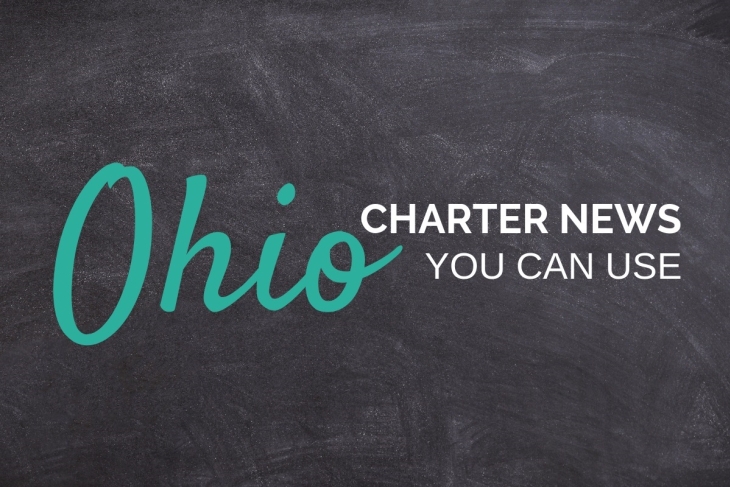Stories featured in Ohio Charter News Weekly may require a paid subscription to read in full.
The champion and the championed
Lt. Governor Jon Husted yesterday received the 2024 Champion for Public Charter Schools Award, given out by the National Alliance for Public Charter Schools to honor bipartisan state policymakers who are making an exceptional difference for charter school families and communities in their state and who go above and beyond to shape students’ futures for the better. Kudos to a longtime champion of children and high-quality educational options in our state. Husted received the award during an event in Columbus discussing the findings of new research into the impacts of a charter funding program that he and Governor Mike DeWine helped bring to fruition. Analysis finds that funding from the Quality Community School Support Fund, which has provided supplemental aid to quality Ohio charter schools since FY 2020, has allowed charters to boost their teachers’ salaries, reduce staffing turnover, and drive student learning gains. The full report can be read or downloaded here.
The wheels on the bus go nowhere
Speaking of elected officials working to help charter schools and the families they serve, Ohio Attorney General Dave Yost last week fought back against efforts by Columbus City Schools to dismiss a lawsuit against them related to inadequate transportation. He asserts that the district continues to evade responsibility to transport district-resident students attending charter and private and STEM schools who are entitled by law to bus service. “Students need transportation now,” he said in a new filing with the state Supreme Court. “The law clearly provides them with that right. The fact that the district may face future fines does nothing to help these students with their current ongoing harm.”
Charter accountability
Most aspects of Ohio’s school accountability systems were suspended during Covid-disrupted school years in 2020 and 2021. Well, as far more normal patterns have returned, so too have the accountability requirements in state law. This includes a mandatory closure provision for charter schools who earn very low ratings on report cards over a three year span. The Maritime Academy of Toledo has, unfortunately, posted two such report cards in consecutive years. (And they are not alone.) Which means that they could be facing closure next year. School leaders in the Glass City are concerned. “I believe in accountability, and I believe in the report cards,” said Maritime Academy superintendent Aaron Lusk. “We need more time because of the specific nature of our school. Community schools are supposed to be innovative. They’re supposed to be different than public schools. But we’re held to the same measure, but also held to an automatic closure law.”
Say it out loud
Here’s a nice profile of Lorain Bilingual Academy, the only such immersion school in an area of the state featuring a very high concentration of Spanish-speakers. The story is great, but I sure wish Spectrum News would have specified that it was a charter school, so that it could highlight the innovative nature of charters generally and LBA specifically, but also because they could highlight the open enrollment aspect as well. No attendance boundaries, no tuition, no pre-requisites. Seems like a vital part of the story.
Uncharted political waters
Education Week reporter Arianna Prothero this week suggested that charter schools are in “uncharted waters” during the current election season. By which she means two things: 1) That both positive and negative political rhetoric about charters from the usual sources is muted or even absent, left behind by other concerns in education and elsewhere; and 2) That what messages are out there are…unusual. Including some traditional opponents finding positive aspects in the charter school space and some traditional charter supporters nervous about negative aspects. Interesting stuff.
Virtuous improvement cycle
Bruno Manno, Senior Advisor with the Progressive Policy Institute, published a piece in Forbes last week laying out what he calls “the virtuous improvement cycle” that high-quality charter schools foster. When charter schools close longstanding student achievement gaps, they reduce academic inequality. This in turn raises the overall quality of public schools. And he cites numerous research reports that back up his assertion. By creating more charter schools, America will be able to improve the quality of K-12 public education and reduce inequality. A good piece that is worth a read.
*****
Did you know you can have every edition of the Ohio Charter News Weekly sent directly to your Inbox? Subscribe by clicking here.




